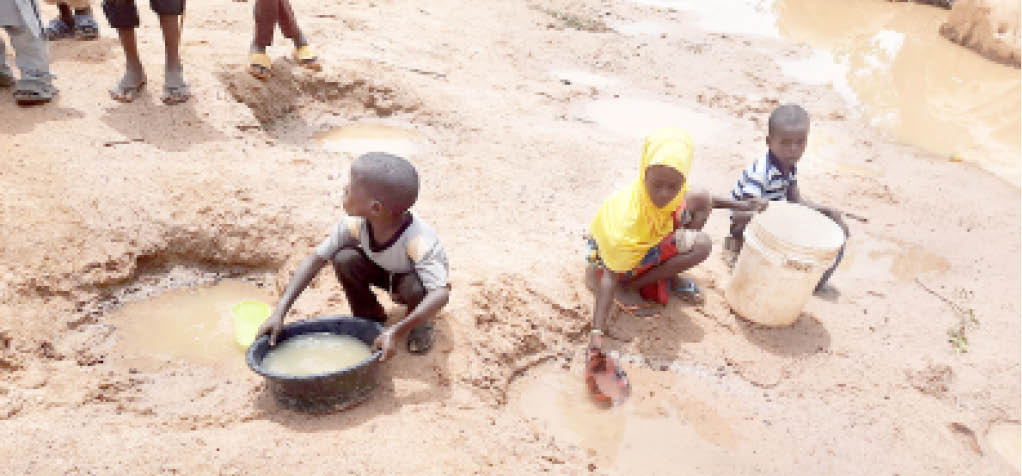Water scarcity has become a pressing issue in villages and urban centers across Northern Nigeria, particularly in states like Borno, Yobe, Gombe, Adamawa, Kano, and Zamfara.
The situation is dire, with communities struggling to access clean and reliable water sources.
This crisis is not only affecting the daily lives of residents but also posing serious health risks, especially in regions like the North East and parts of the Northwest.
Despite having elected officials, including governors, senators, and members of the House of Representatives, the problem of water scarcity persists without significant intervention.
Cities like Maiduguri continue to face chronic water shortages, leaving residents, particularly women, to trek long distances in search of water.
This not only burdens the population but also highlights the failure of governance to provide basic necessities.
The lack of access to clean water exacerbates existing challenges in the region, impacting health, sanitation, and overall quality of life.
It is disheartening to see that while developed countries have effectively addressed issues such as water, electricity, healthcare, infrastructure, and education, Nigeria continues to struggle with providing fundamental services to its citizens.
Politicians, who enjoy privileged access to resources, seem disconnected from the harsh realities faced by ordinary Nigerians.
While they reside in comfort, many of their constituents endure hardship and deprivation due to the scarcity of basic amenities like water.
This stark inequality underscores the urgent need for government intervention to alleviate the suffering of the populace.
It is imperative for both the federal and state governments to prioritize the resolution of the water scarcity crisis in Northern Nigeria.
This requires comprehensive strategies, including investment in infrastructure, implementation of water management initiatives, and community engagement to ensure sustainable access to clean water.
Furthermore, accountability measures must be put in place to ensure that allocated resources are utilized effectively and transparently.
Citizens have a right to demand action from their elected representatives and hold them accountable for addressing pressing issues that affect their well-being.
The water scarcity crisis in Northern Nigeria is a complex challenge that requires immediate attention and concerted efforts from all stakeholders.
By working together, government officials, civil society organizations, and communities can make significant strides towards ensuring that every Nigerian has access to clean and safe water, thus improving livelihoods and fostering sustainable development.



